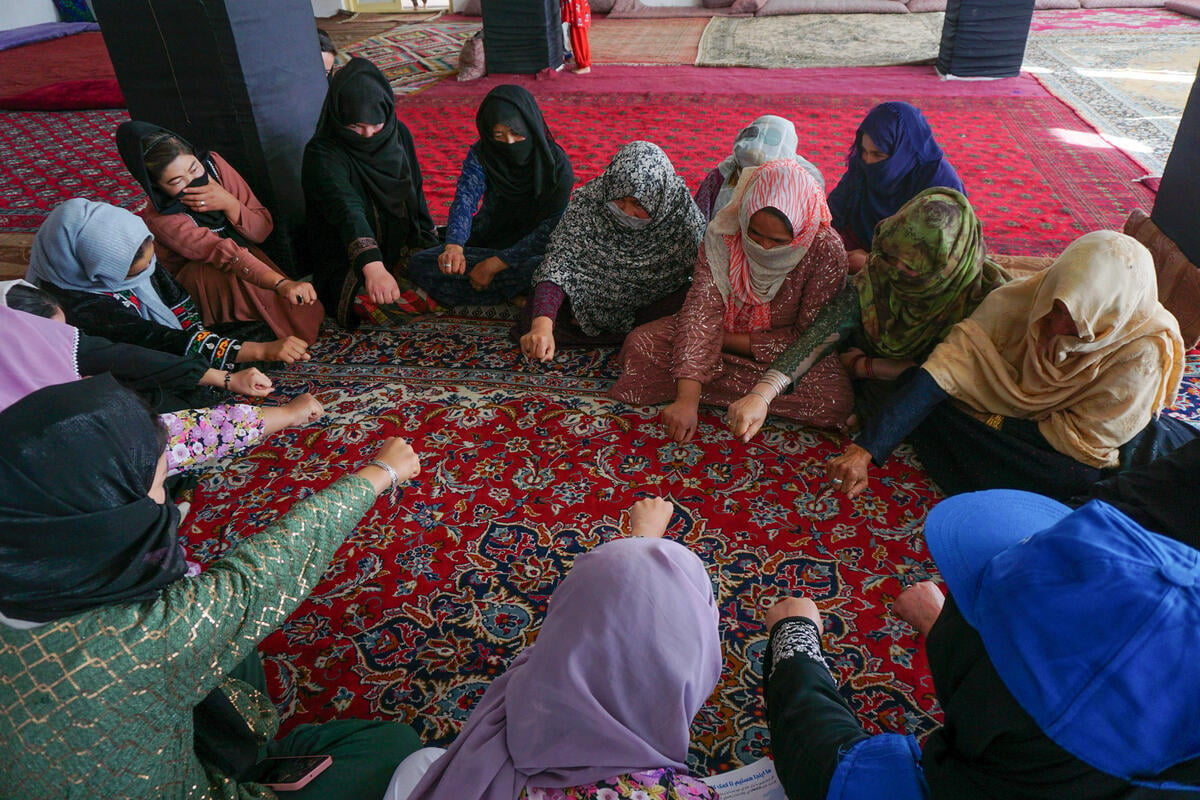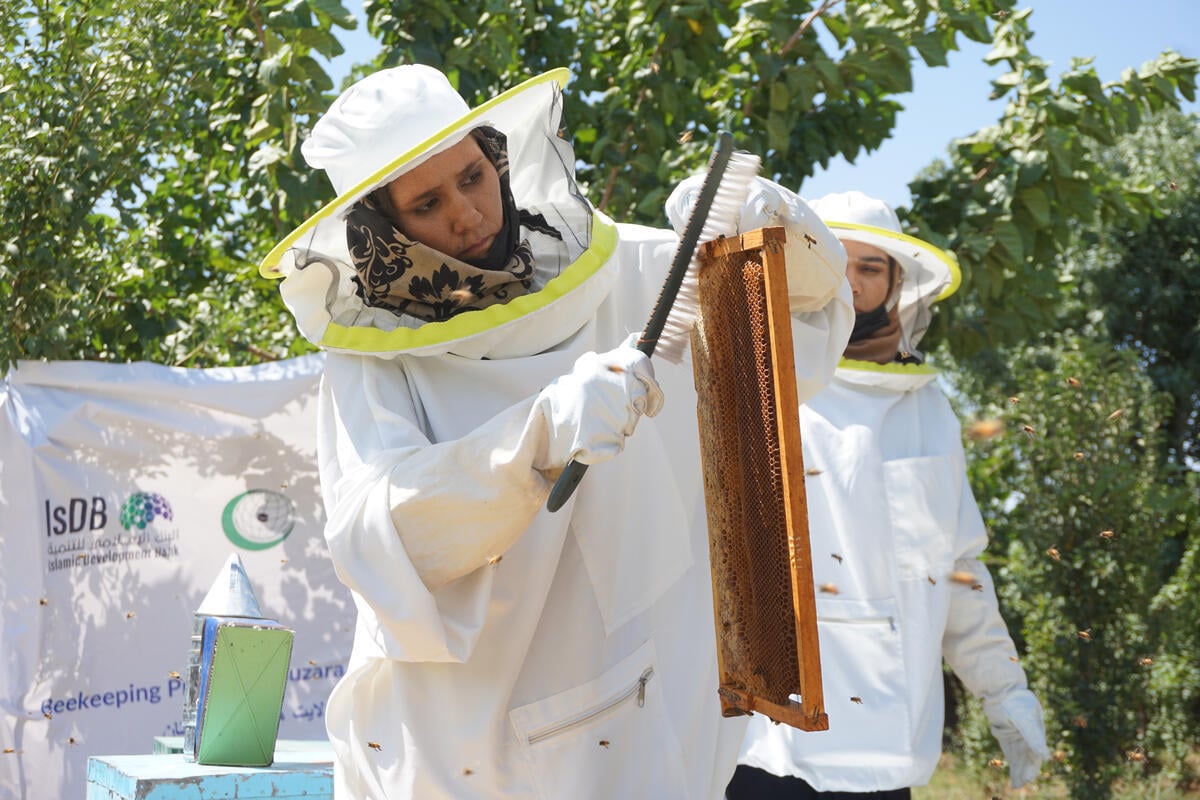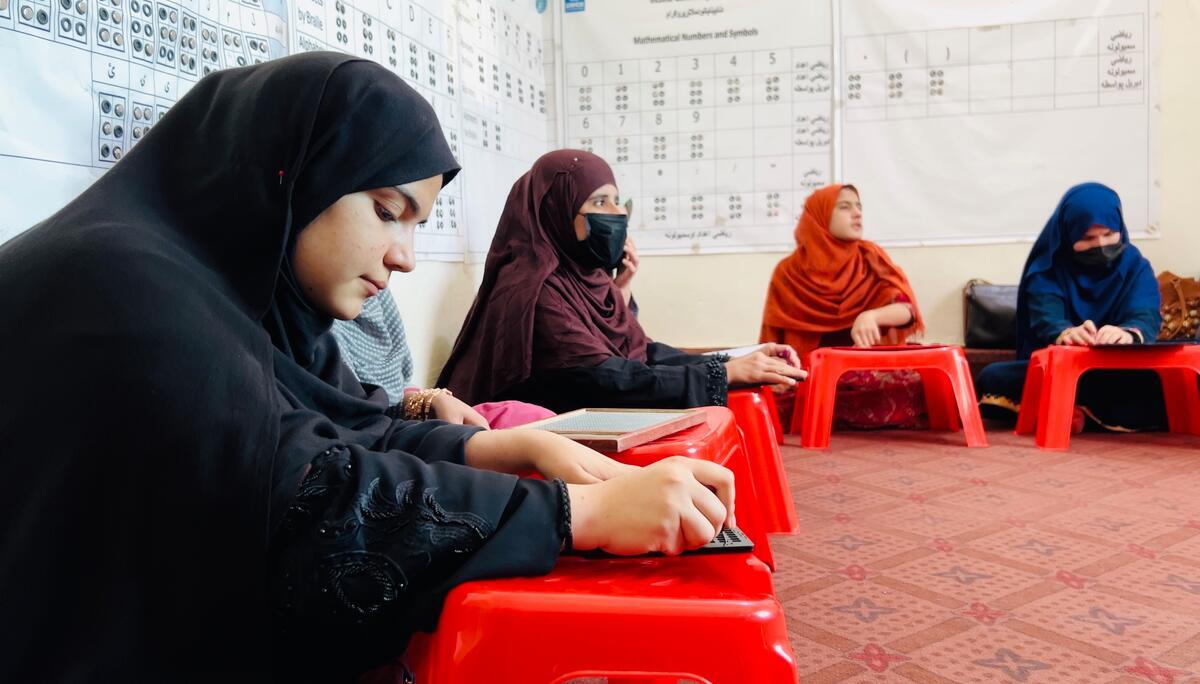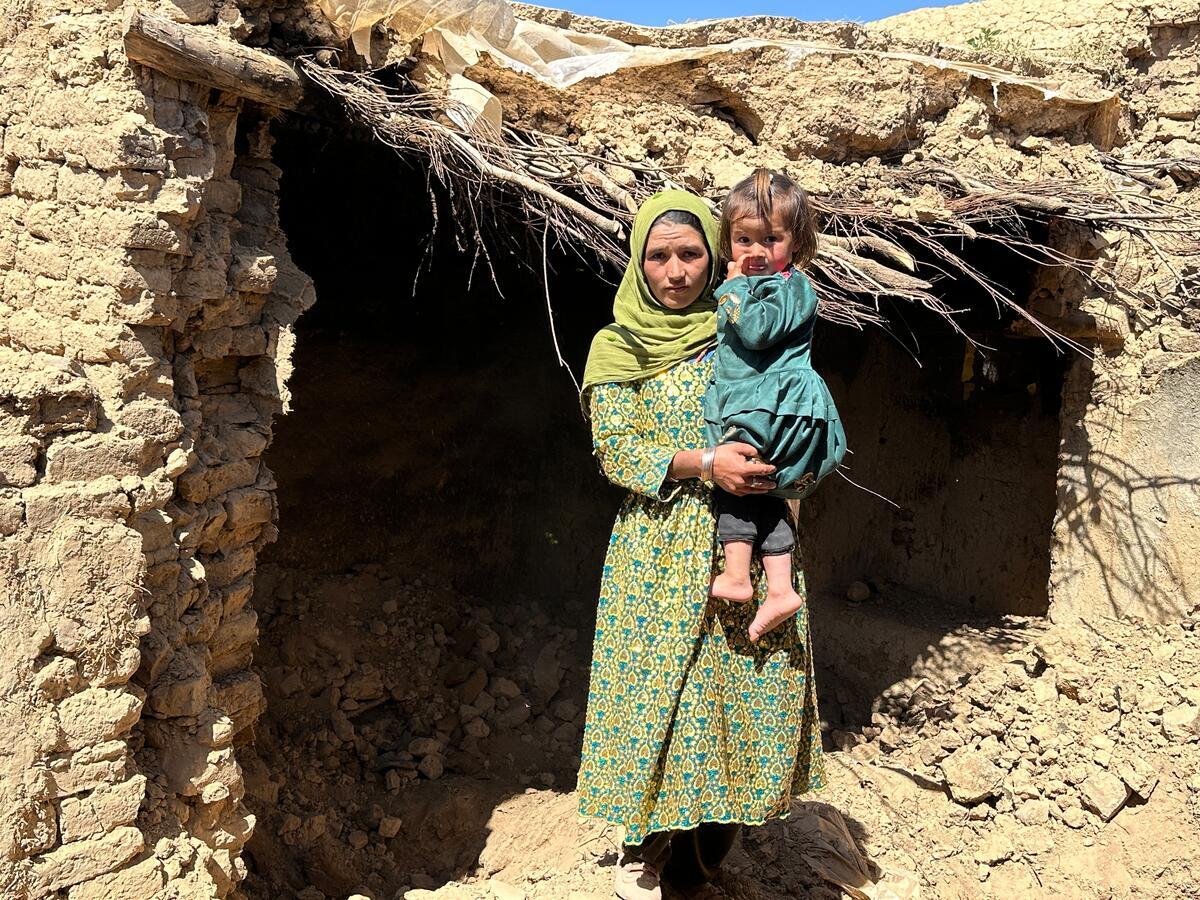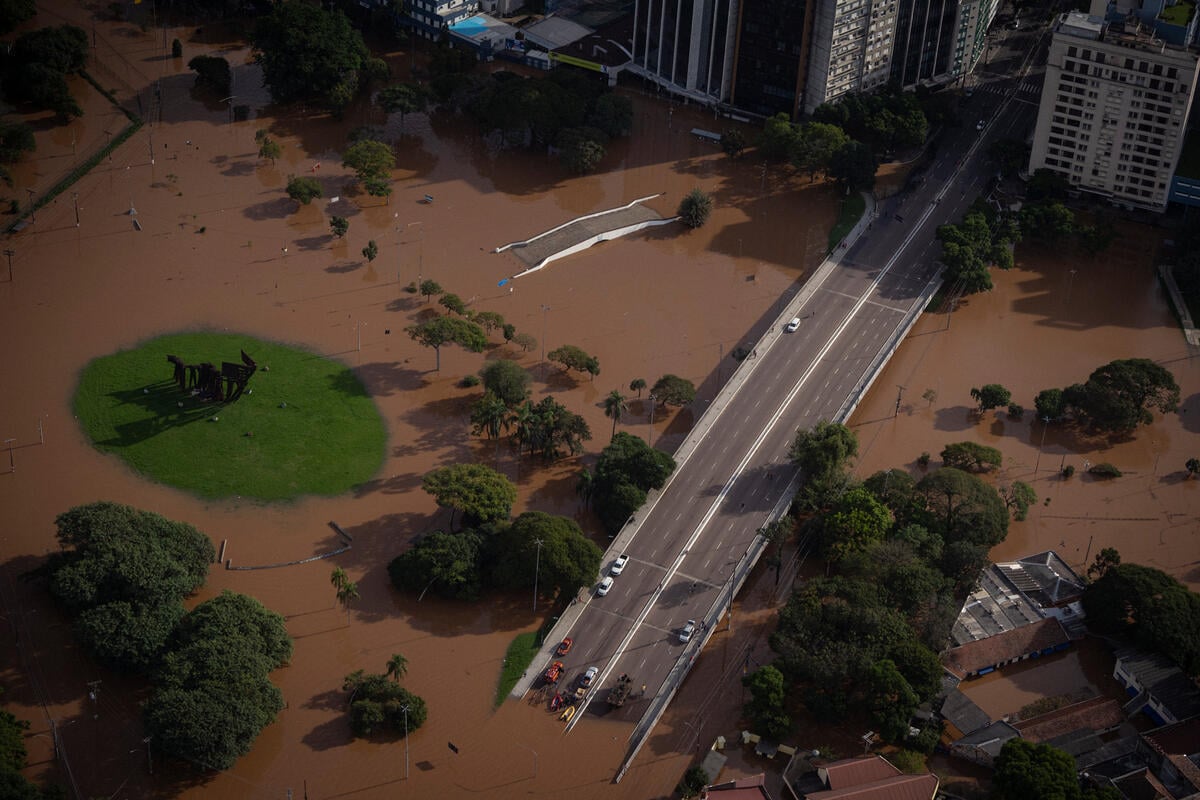As attacks in Afghanistan begin, humanitarian efforts face enormous challenges
As attacks in Afghanistan begin, humanitarian efforts face enormous challenges

GENEVA, 8 Oct. (UNHCR) - With increasingly precarious security conditions in the region, humanitarian efforts to help an expected major exodus of Afghan refugees faced enormous challenges Monday.
Aid officials said it was not immediately clear whether first strikes against targets inside Afghanistan had triggered new population movements. But across the border in Pakistan, the UNHCR office in the town of Quetta was stoned and and the nearby UNICEF office was set ablaze. A UNHCR team was turned back in a tribal area near Peshawar in another demonstration and the incidents highlighted the increasingly difficult security conditions humanitarian officials were now working in.
UNHCR said that it could currently handle tens of thousands of new refugees. UNHCR's contingency plans for the region, however, call for preparations for an initial influx of up to 400,000.
The overall contingency plan covering the next six months is based on a worst-case scenario of up to 1.5 million Afghans fleeing to neighbouring countries. UNHCR is taking a modular approach in its preparations for any possible influx. Pakistan and Iran already jointly host 3.5 million Afghan refugees.
Over the weekend, High Commissioner Ruud Lubbers said that the main goal of the international community should be to get as much help as possible into Afghanistan. At the same time, UNHCR must continue its preparations in the neighbouring countries.
On Monday UNHCR asked Iranian and Pakistani officials to help it "identify and develop more suitable, safe, and adequate sites than those so far offered."
"UNHCR fears that if additional safe and adequate sites are not offered, identified and made ready quickly, it will be extremely difficult to deal with any large influx, despite the financial and other resources now beginning to flow from donors," a statement added.
UNHCR said that thus far it had amassed 4,000 tents, 6,000 blankets and 10,000 plastic sheets in Quetta. But it said the supplies remained in warehouses because the campsites were still not ready. While more than 30 possible refugee campsites have been identified in Pakistan, for instance, only a few of those will be operational within the next ten days, the agency said.
"Water is expected to be a major problem in the arid Quetta area, hit hard by a four-year drought," according to UNHCR.
In another development, the UNHCR office in Quetta was stoned by a crowd of demonstrators protesting the British and American bombing raids, forcing the UNHCR staff to leave the building and flee to a safer location. No one was injured in the attack. However, a UNHCR team travelling to tribal areas near the city of Peshawar in search of additional refugee campsites was forced to turn back at the town of Landikotal because of the demonstrations.
In its latest Afghanistan humanitarian update published Monday, UNHCR said it was not immediately clear whether the initial strikes against targets inside Afghanistan triggered a new wave of population movements. While reports indicated that civilians were fleeing the capital of Kabul, as well as other cities such as Jalalabad and Kandahar, it was uncertain whether they were heading to nearby villages or towards the borders. The agency says as many as 300,000 Afghans could flee to Pakistan and another 80,000 to Iran in the initial stages of the fighting.


